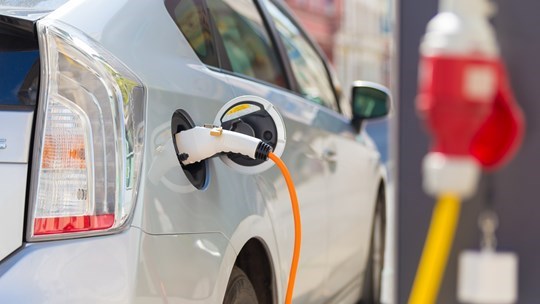Has your union representative made a difference for you and your colleagues? Then you can say thank you by nominating them for the Union Representative of the Year award.
News
Municipalities must not become a stumbling block for more electric cars

The municipalities play a central role in the development of charging infrastructure. Photo: Archive
Elements such as intelligent power consumption, road pricing and the municipalities as key players are good elements in the Eldrup Commission's second progress report on charging infrastructure. But it is also the role of the municipalities that raises concerns at the Danish Society of Engineers, IDA. At IDA, we are missing several specific instructions from the Commission.
“We are really happy that the municipalities play a central role. But I miss a bit of clarity about exactly how to roll it out at the municipal level. We are dealing with 98 different municipalities, all of which have to publish public tenders, and there may be some disputes around municipal boundaries. Here, I would like a few more concrete proposals from the Eldrup Commission,” says Thomas Damkjær Petersen, Chairman of the Danish Society of Engineers, IDA.
Because the municipalities are tasked with providing sensible strategic locations for charging stations to make it convenient and easy to get one’s car charged, IDA would have preferred for them to have no obstacles in their work.
“We need to put our foot right down on the accelerator immediately if we want to reach the goal of getting 1 million electric cars on Danish roads in 2030”
Thomas Damkjær Petersen,
Chairman of IDA
“To me, the process sounds too drawn-out. I would have liked to have seen a catalogue of laws so that the municipalities can get started with a tender immediately. My biggest concern is that not enough electric cars are rolling out of the carports. We need to put our foot right down on the accelerator immediately if we want to reach the goal of getting 1 million electric cars on Danish roads in 2030,” says Thomas Damkjær Petersen.
The Commission also recommends that the possibility of a congestion charge in the environmental zone in Copenhagen and Frederiksberg be investigated. This must be done before a decision is made to possibly introduce the tax. A congestion charge could potentially act as a stepping stone to a national mileage-based toll system, the commission writes.
"Now the Eldrup Commission also points to the possibility of a congestion charge – a suggestion otherwise not included in their first report. I am glad they have been listening to our proposal about introducing road pricing, for instance. At IDA, we have long argued that we should move taxes from car purchases to driving. The technologies are ready, so we just lack the political support to get started on the many opportunities that are just around the corner,” says Thomas Damkjær Petersen.